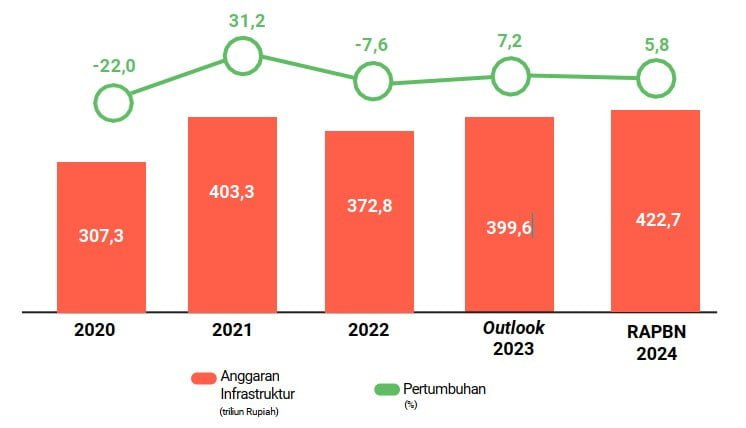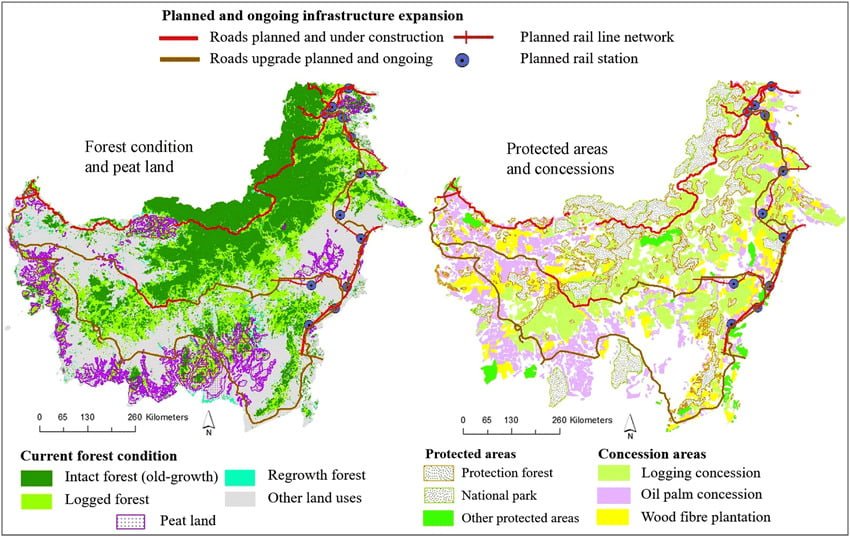Indonesia is undergoing a massive transformation, fueled by significant investments in infrastructure. The government has taken bold steps to revamp the nation’s transportation, energy, and urban systems. With a staggering budget of 365.8 trillion Indonesian rupiah (around $25 billion) allocated in 2022 alone, Indonesia’s commitment to enhancing its infrastructure is evident. These projects are not just about building roads or bridges; they are about connecting regions, creating jobs, and driving economic growth. From the new capital city to high-speed rail, each initiative aims to redefine the country’s landscape.

Major Strategic Projects: Boosting Economic Activity Beyond Java
Indonesia’s ambitious five-year development plan includes 41 major strategic projects, with a combined investment of approximately $500 billion (around 7.37 quadrillion rupiah). These projects are strategically designed to stimulate economic growth outside Java, which currently accounts for about 60% of the country’s economic output. By focusing on urban and industrial development across the archipelago, the government aims to create new economic hubs that will foster regional development and reduce economic disparity.
One of the standout projects is the Trans-Sumatra Toll Road, a $12 billion initiative launched in 2015. This massive infrastructure project aims to connect the northern and southern parts of Sumatra, facilitating trade and travel across the island. By improving regional connectivity, the toll road will boost economic activities, making Sumatra a critical player in the national economy.
Nusantara: A New Capital City to Decentralize Growth
Another transformative project is the construction of Nusantara, the new capital city of Indonesia. With an estimated cost of $33.7 billion, Nusantara is set to decentralize economic activity from the crowded island of Java to other regions. This bold move aims to create a balanced distribution of resources, reducing the population and development pressure on Jakarta.

The city will include modern infrastructure for government offices, housing, and public services, creating numerous job opportunities both during and after construction.
Innovative Transportation Solutions: High-Speed Rail and Expanded Networks
Transportation plays a crucial role in Indonesia’s infrastructure plans. The Jakarta-Bandung High-Speed Rail project is one of the key initiatives expected to transform the nation’s connectivity. Costing around $7.3 billion, this rail line will reduce travel time between Jakarta and Bandung from 3 hours to just 40 minutes. This enhancement will not only make travel more efficient but also spur economic activity in the region by improving access to markets and resources.
In addition to high-speed rail, Indonesia is investing heavily in expanding its railway network, with plans to construct 7,451 kilometers of new tracks. This expansion aims to enhance logistics efficiency and support the movement of goods and people across the country. The improved rail infrastructure is expected to bolster economic growth by reducing travel costs and time, making Indonesia’s economy more competitive on a global scale.
Energy Infrastructure: Securing Indonesia’s Future
Energy infrastructure is another critical focus of Indonesia’s development agenda. The government plans to invest 94 trillion rupiah (about $6.5 billion) in projects that include the construction of 16 dams and natural gas transmission pipelines. These investments are essential for ensuring energy security and supporting Indonesia’s rapidly growing industrial sector. Reliable energy infrastructure will enable industries to operate more efficiently, fostering economic growth and improving the standard of living for millions of Indonesians.
Public Transport Enhancements: Urban Mobility for a Growing Nation
As urban areas continue to expand, public transportation becomes increasingly important. The government has allocated 10.7 trillion rupiah (around $750 million) to enhance public transport systems in major cities. This investment aims to increase public transport usage by 30%, helping to alleviate traffic congestion and improve urban mobility. By investing in sustainable transport solutions, Indonesia is taking steps toward creating more livable cities with efficient, eco-friendly transit options.
The Infrastructure Development Indonesia is more than just construction; it is a strategic effort to connect the nation, boost regional economies, and improve the quality of life. Each initiative is a stepping stone toward a more connected and prosperous Indonesia. With continued investment and focus, Indonesia is well on its way to becoming a regional economic powerhouse.

